- Home
- Curriculum
- Personal Development
Personal Development
PSHE
The curriculum at Widcombe C of E Junior school is based on the National Curriculum and is underpinned by the Palladian Academy Trust curriculum spine.
We use the JIGSAW scheme of work to deliver our PSHE curriculum.
Jigsaw, the mindful approach to PSHE, brings together Personal, Social, Health Education, emotional literacy, social skills and spiritual development in a comprehensive scheme of learning. A lesson a week helps teachers to focus on tailoring the lessons to their children’s needs and to enjoy building the relationship with their class, getting to know them better as unique human beings.
There are six Puzzles in Jigsaw designed to progress in sequence from the beginning of each academic year:
Term 1: Being Me in My World
Term 2: Celebrating Difference (including anti-bullying)
Term 3: Dreams and Goals
Term 4: Healthy Me
Term 5: Relationships
Term 6: Changing Me (including Puberty and Human Reproduction Education)
Jigsaw provides a comprehensive PSHE Programme which covers all the requirements of the government guidance and outcomes, and more. The Relationships and Healthy Me Puzzles (units) cover most of the aspects in the guidance but these are enhanced, revisited and foundations built throughout the Jigsaw Programme. Jigsaw’s philosophy starts by building positive self-image, a sense of identity and a healthy relationship with self, and from that starting point helps children grow healthy relationships with others.
Health Education in Jigsaw embraces not only physical health but has a strong focus on mental health and emotional literacy throughout and empowers children to be aware of their own thoughts and feelings and know how to manage and regulate these e.g. using mindfulness techniques.
The teaching of SMSC, Safeguarding and British Values is taught explicitly within the JIGSAW PSHE curriculum but is also interwoven through our whole curriculum and Collective Worship programme of study.
SMSC
What is SMSC?
SMSC stands for Spiritual, Moral, Social and Cultural development.
Defining Spiritual, Moral, Social and Cultural Development
At Widcombe C of E Junior School children have opportunities to develop spiritually by:
- exploring and developing personal values and beliefs
- exploring the values and beliefs of others
- reflecting on their work and performance
- learning about respect
- developing empathy by understanding feelings and emotions
- appreciating things like beauty, truth and goodness
- using imagination and creativity in learning

At Widcombe C of E Junior School children have opportunities to develop morally by:
- recognising the difference between right and wrong
- applying this understanding in their own lives and in doing so, respecting the civil and criminal law of England
- considering the range of accepted values in society
- developing skills such as decision making and consideration of others
- engaging with moral philosophy and skills of analysis
- understanding the consequences of their actions
- exploring moral and ethical issues

At Widcombe C of E Junior School children have opportunities to develop socially by:
- working in teams or groups co-operatively
- taking part in group and school experiences such as assemblies, residential experiences and school productions
- taking on roles of responsibility
- understanding how groups, communities and societies function at a variety of levels
- developing social skills
- showing respect

At Widcombe C of E Junior School children have opportunities to develop culturally by:
- exploring and understanding their own culture
- exploring and understanding different cultures to prepare them for life in modern Britain
- developing a knowledge of Britain's democratic parliamentary system
- participating in artistic, musical and sporting activities

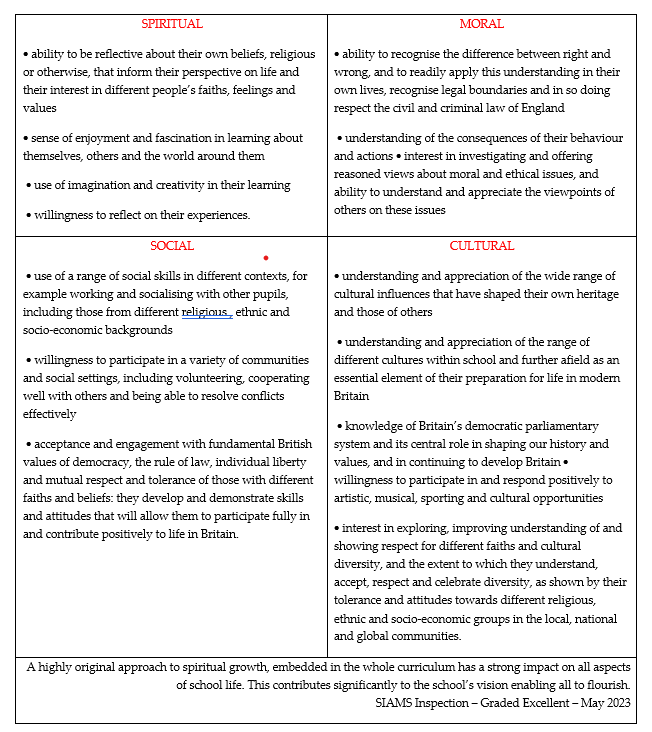
British Values
Widcombe C of E Junior School is committed to working closely and in harmony with its community to celebrate the diversity of the UK. We aim to prepare children for life in modern Britain and to ensure that our school ethos, curriculum and approaches to teaching and learning reflect and promote British values.
We recognise that these values are not exclusive to being British and that they have come to be accepted throughout the democratic world as the method of creating an orderly society in which individual members can feel safe, valued and can contribute to for the good of themselves and others. Furthermore, we work alongside our local community and recognise the variety of religious beliefs within it. We take children outside the school to take part in local events and meet different members of the community to appreciate the valuable contributions they make.
We take opportunities to:
- acknowledge, celebrate and commemorate national events and anniversaries related to key events in Britain’s past;
- join in with international sporting events and find out more about the countries that host them;
- support a number of charities that are selected by the children and arrange fundraising events;
- invite members of the local community to our school events.
We understand the role that our school has in helping prevent radicalisation and supporting our children in developing a world view recognising Britain’s place within it.
The five British values are:
- democracy;
- the rule of law;
- individual liberty;
- mutual respect;
- tolerance of those with different faiths and beliefs.
British Values at WJS
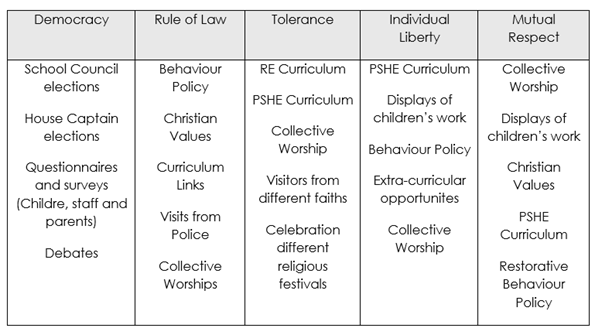
Relationship and Sex Education
From September 2020, all primary schools are required by the government to teach Relationships and Health Education as part of their Personal, Social, Health, and Economic (PSHE) curriculum. You can find further government guidance relating to this in the link below.
Relationships and sex education (RSE) and health education - GOV.UK (www.gov.uk)
It has been created to help children have positive and safe relationships with anyone they might come into contact with including family, friends, and people online.
It will help children make good decisions about their health and wellbeing and enable them to know how and where to seek support if any health issues arise for themselves or others.
If you would like more information about statutory Relationships and Health Education, please click here to read the government guide “Understanding Relationships and Health Education in your child’s primary school: a guide for parents”.
You can read a copy of our Relationships Education, and Health Education Policy here.
RSE @ WJS
The work on puberty and human reproduction is taught through the 'Changing Me' unit within JIGSAW. This is typically delivered within the last term of the academic year.
Year 5:
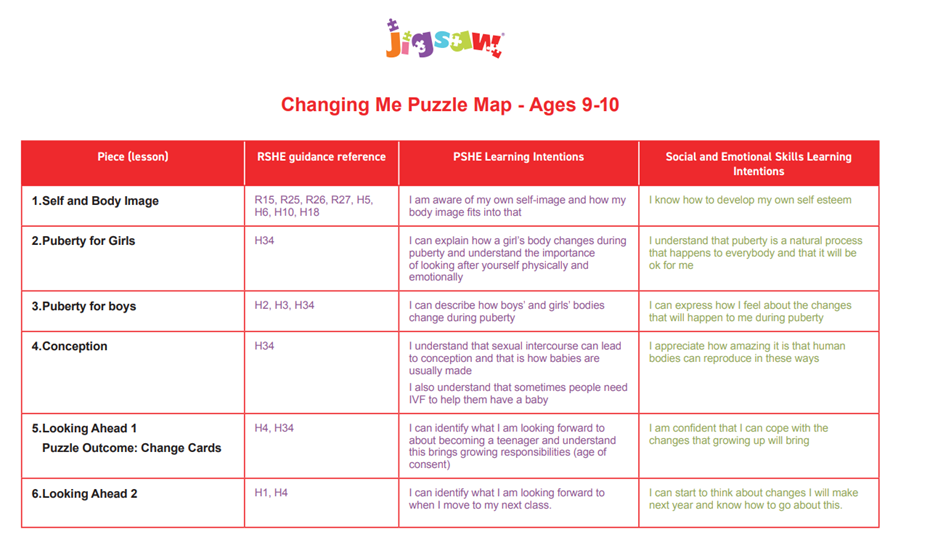
Year 6:
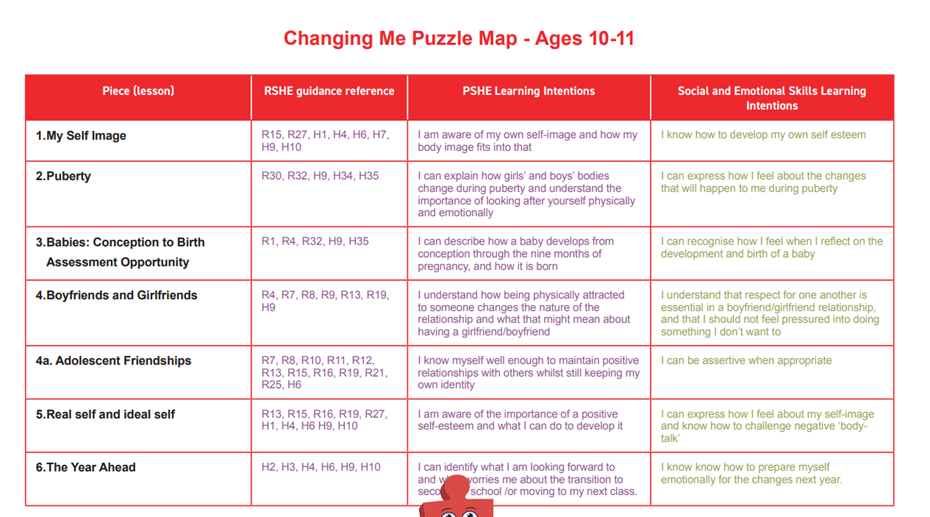
Safeguarding
Jigsaw, our chosen scheme of work for PSHE, meets all the statutory Relationships and Health Education requirements for primary schools.
Jigsaw takes children and young people’s safety very seriously and aims to equip them to lead safe, happy and healthy lives, to embrace the opportunities open to them, to aim high, and to be empowered to keep themselves safe, know their rights and responsibilities and know where and how to ask for help when needed.
Jigsaw is thoughtfully planned to ensure the more sensitive issues of PSHE are covered in age- and stage-appropriate ways and as a school we tailor this to suit the requirements of our students’ needs and to align with our ethos.
Jigsaw aims to equip children and young people with knowledge and skills which empower them. We believe that age-appropriate knowledge e.g. about puberty or relationships, coupled with personal skills of e.g. self-esteem, assertiveness and respect and the understanding that their bodies belong to them and they have the right of consent in all aspects of their lives, supports students to be safe.
Teachers are also well-equipped with regular safeguarding training and know how to recognise the multiple signs of e.g. abuse or neglect.
The Jigsaw Programme builds the foundations of children and young people’s positive relationship with themselves, self-esteem, self-respect, and assertiveness skills; and it approaches sensitive subjects in an age and stage-appropriate way, which is particularly important when it comes to safeguarding and teaching about consent. Jigsaw is designed as a whole-school approach which when embraced fully, enhances ethos and develops positive relationships, children experiencing support and trust.
While predominately taught through PSHE lessons using JIGSAW resources, safeguarding is also interwoven throughout our curriculum and is supplemented through Collective Worship programme.
For further information about safeguarding within our curriculum, please see the overview of our approach here.
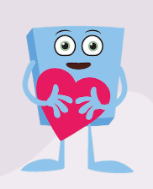
Online Safety
Online Safety is an important part of keeping children safe at Widcombe C of E Junior School.
Online Safety is taught to all pupils as either a discrete lesson as part of our Computing or PSHE curriculum, a discrete session as part of stand-alone days (Safer Internet Day for example) or it is taught in conjuction with part of the wider curriculum/PSHE/Computing curriculum.
All pupils are able to explain and demonstrate how to stay safe and behave appropriately online.
For further information on how we keep children safe online, please visit our Online Safety page under Key Information.




